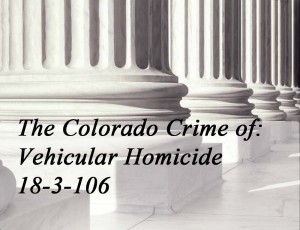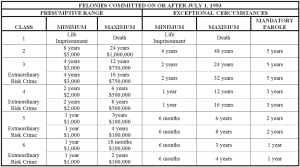| (4) |
| (a) |
If a law enforcement officer has probable cause to believe that any person was driving a motor vehicle in violation of paragraph (b) of subsection (1) of this section, the person, upon the request of the law enforcement officer, shall take, and complete, and cooperate in the completing of any test or tests of the person’s blood, breath, saliva, or urine for the purpose of determining the alcoholic or drug content within his or her system. The type of test or tests shall be determined by the law enforcement officer requiring the test or tests. If the person refuses to take, or to complete, or to cooperate in the completing of any test or tests, the test or tests may be performed at the direction of a law enforcement officer having probable cause, without the person’s authorization or consent. If any person refuses to take or complete, or cooperate in the taking or completing of any test or tests required by this paragraph (a), the person shall be subject to license revocation pursuant to the provisions of section 42-2-126(3), C.R.S. When the test or tests show that the amount of alcohol in a person’s blood was in violation of the limits provided for in section 42-2-126(3) (a), (3) (b), (3) (d), or (3) (e), C.R.S., the person shall be subject to license revocation pursuant to the provisions of section 42-2-126 , C.R.S. |
| (b) |
Any person who is required to submit to testing shall cooperate with the person authorized to obtain specimens of his blood, breath, saliva, or urine, including the signing of any release or consent forms required by any person, hospital, clinic, or association authorized to obtain such specimens. If such person does not cooperate with the person, hospital, clinic, or association authorized to obtain such specimens, including the signing of any release or consent forms, such noncooperation shall be considered a refusal to submit to testing. |
| (c) |
The tests shall be administered at the direction of a law enforcement officer having probable cause to believe that the person committed a violation of subparagraph (I) of paragraph (b) of subsection (1) of this section and in accordance with rules and regulations prescribed by the state board of health concerning the health of the person being tested and the accuracy of such testing. Strict compliance with such rules and regulations shall not be a prerequisite to the admissibility of test results at trial unless the court finds that the extent of noncompliance with a board of health rule has so impaired the validity and reliability of the testing method and the test results as to render the evidence inadmissible. In all other circumstances, failure to strictly comply with such rules and regulations shall only be considered in the weight to be given to the test results and not to the admissibility of such test results. It shall not be a prerequisite to the admissibility of test results at trial that the prosecution present testimony concerning the composition of any kit used to obtain blood, urine, saliva, or breath specimens. A sufficient evidentiary foundation concerning the compliance of such kits with the rules and regulations of the department of public health and environment shall be established by the introduction of a copy of the manufacturer’s or supplier’s certificate of compliance with such rules and regulations if such certificate specifies the contents, sterility, chemical makeup, and amounts of chemicals contained in such kit. |
| (d) |
No person except a physician, a registered nurse, a paramedic as certified in part 2 of article 3.5 of title 25, C.R.S., an emergency medical service provider as defined in part 1 of article 3.5 of title 25, C.R.S., or a person whose normal duties include withdrawing blood samples under the supervision of a physician or registered nurse is entitled to withdraw blood for the purpose of determining the alcoholic or drug content of the blood for purposes of this section. In a trial for a violation of paragraph (b) of subsection (1) of this section, testimony of a law enforcement officer that he or she witnessed the taking of a blood specimen by a person who he or she reasonably believed was authorized to withdraw blood specimens is sufficient evidence that the person was authorized, and testimony from the person who obtained the blood specimens concerning the person’s authorization to obtain blood specimens is not a prerequisite to the admissibility of test results concerning the blood specimens obtained. No civil liability shall attach to any person authorized to obtain blood, breath, saliva, or urine specimens or to any hospital, clinic, or association in or for which such specimens are obtained pursuant to this subsection (4) as a result of the act of obtaining the specimens from a person if the specimens were obtained according to the rules prescribed by the state board of health; except that such provision does not relieve the person from liability for negligence in obtaining any specimen sample. |
| (e) |
Any person who is dead or unconscious shall be tested to determine the alcohol or drug content of his blood or any drug content of his system as provided in this subsection (4). If a test cannot be administered to a person who is unconscious, hospitalized, or undergoing medical treatment because the test would endanger the person’s life or health, the law enforcement agency shall be allowed to test any blood, urine, or saliva which was obtained and not utilized by a health care provider and shall have access to that portion of the analysis and results of any tests administered by such provider which shows the alcohol or drug content of the person’s blood or any drug content within his system. Such test results shall not be considered privileged communications and the provisions of section 13-90-107, C.R.S., relating to the physician-patient privilege shall not apply. Any person who is dead, in addition to the tests prescribed, shall also have his blood checked for carbon monoxide content and for the presence of drugs, as prescribed by the department of public health and environment. Such information obtained shall be made a part of the accident report. |
| (f) |
If a person refuses to take, or to complete, or to cooperate in the completing of any test or tests as provided in this subsection (4) and such person subsequently stands trial for a violation of subsection (1) (b) of this section, the refusal to take or to complete, or to cooperate with the completing of any test or tests shall be admissible into evidence at the trial, and a person may not claim the privilege against self-incrimination with regard to the admission of his refusal to take, or to complete, or to cooperate with the completing of any test or tests. |
| (g) |
Notwithstanding any provision in section 42-4-1301.1, C.R.S., concerning requirements which relate to the manner in which tests are administered, the test or tests taken pursuant to the provisions of this section may be used for the purposes of driver’s license revocation proceedings under section 42-2-126, C.R.S., and for the purposes of prosecutions for violations of section 42-4-1301(1) or (2), C.R.S. |
|






 To understand the Colorado Criminal Code and more specifically the charge or charges in the Complaint and Information or Grand Jury Indictment against you – you need TWO things.
To understand the Colorado Criminal Code and more specifically the charge or charges in the Complaint and Information or Grand Jury Indictment against you – you need TWO things.












